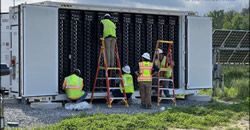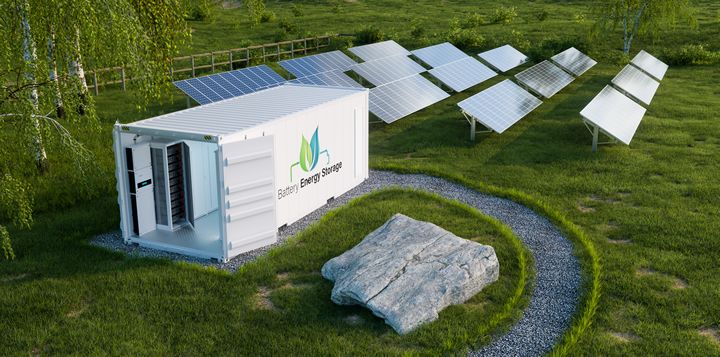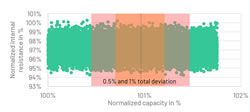Battery Energy Storage System (BESS) Decommissioning and End-of-Life Planning: Why Care Today?
When a BESS does reach the end of its useful life, disposal can be a complex task that must be carefully planned and executed. If you are just starting the permitting process, or in the early stages of BESS project development, this article is for you!
Ensuring Safety and Efficiency with FLIR Thermal Monitoring for Battery Energy Storage Systems
Battery Energy Storage Systems (BESS) are essential for storing renewable energy and ensuring grid stability. However, their implementation comes with inherent risks, particularly related to lithium-ion battery fires.
Vanadium Redox Flow Batteries
Storion has focused on securing access to a unique vanadium leasing model. Because the vanadium electrolyte represents 40-60% of a VRFB system's cost, it is a clear, leading candidate for cost reduction.
The Impact of Battery Energy Storage on the Clean Energy Transition
By improving grid efficiency and reducing the need for costly infrastructure upgrades, BESS can lower overall energy costs for consumers. Additionally, battery projects can create manufacturing, installation, and maintenance jobs, contributing to the growth of a clean energy economy.
Guide to Factory Acceptance Tests (FAT) for BESS
BESS systems undergo rigorous testing during the development process to ensure they operate safely and reliably. One of the most important steps of this pre-deployment protocol is Factory Acceptance Testing (FAT).
Harnessing the Flow of Battery Energy Storage Systems
The volatility of renewable prices and sourcing requires reliable storage solutions. One proven method is megawatt-level BESS and demand, stabilizing grids, preventing renewable energy waste, and encouraging innovation.
Records 1 to 6 of 6
Featured Product

Vecoplan - Planning and implementation of complete processing plants in refuse derived fuel production
In order to reduce the costs involved in the energy-intensive production of cement, many manufacturers are turning to refuse-derived fuels (RDF), considerably reducing the proportion of expensive primary fuels they would normally use. Solid fuels are being increasingly used - these might be used tyres, waste wood or mixtures of plastics, paper, composite materials and textiles. Vecoplan provides operators of cement plants with proven and robust components for conveying the material and separating iron and impurities, efficient receiving stations, storage systems and, of course, efficient shredders for an output in various qualities.






.jpg)